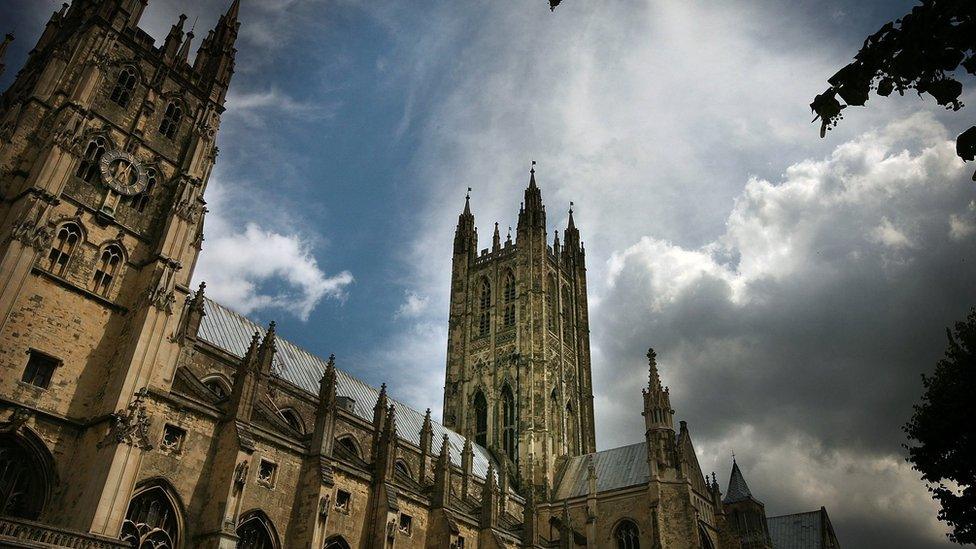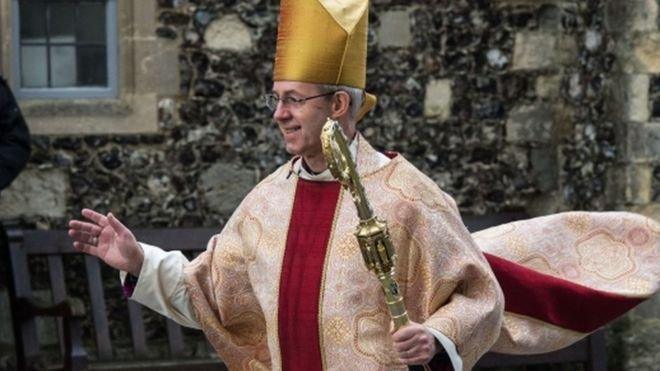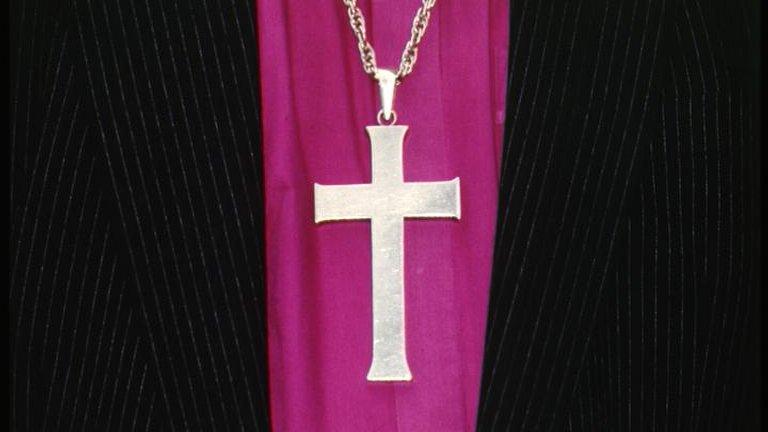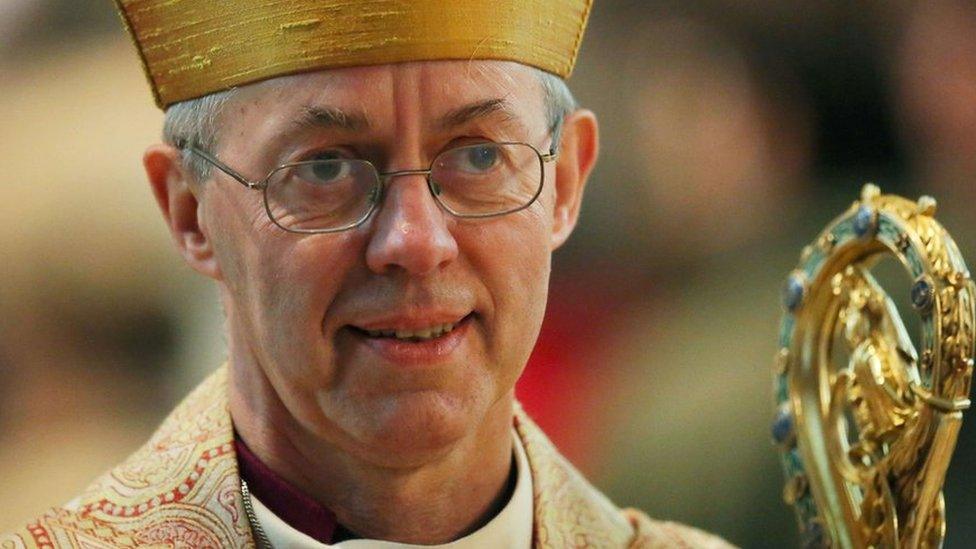Church split over homosexuality would be a failure - Welby
- Published

The Primates' meeting is being held in Canterbury, Kent
A split in the Anglican Communion over homosexuality "would not be a disaster, but it would be a failure", the Archbishop of Canterbury has said.
Speaking before a meeting of world Anglican leaders, Justin Welby said he wanted "reconciliation", but that would mean "finding ways to disagree well".
Views range from Churches in the US and elsewhere who accept openly gay clergy to those who condemn homosexual acts.
There are fears of a permanent schism in the 80m-strong Communion.
The Communion covers more than 160 countries, many of whom look to Archbishop Welby for leadership. The Anglican Communion website describes him as "first among equals".
Since the liberal Episcopal Church in America consecrated Canon Gene Robinson - a divorced man in a gay relationship - as bishop of New Hampshire in November 2003, sniping within the Communion has intensified.
'Disagree profoundly'
In many African countries and elsewhere, active homosexuality remains a crime. Many conservatives within the Church say they are also firmly against accepting homosexuality on Biblical grounds and want an apology and repentance from the liberals for appointing openly gay priests and bishops.
There is little common ground between the two factions among the Primates of Anglican churches, and there are fears that some of the African leaders may stage a walk-out from the meeting.
Archbishop Welby told BBC Radio 4's Today programme: "A schism would not be a disaster... God is bigger than our failures, but it would be a failure.
"It would not be good if the Church is unable to set an example to the world of showing how we can love one another and disagree profoundly, because we are brought together by Jesus Christ, not by our own choice."
He continued: "Certainly I want reconciliation, but reconciliation doesn't always mean agreement - in fact, it very seldom does. It means finding ways to disagree well and that's what we've got to do this week.
"There's nothing I can do if people decide that they want to leave the room. It won't split the communion."
He added: "The Church is a family and you remain a family even if you go your separate ways."

Analysis

By Caroline Wyatt, BBC religious affairs correspondent
Given the fractious Primates' meetings of the past, the Archbishop of Canterbury has done well simply in persuading all 38 to meet around one table, using much of the personal capital he built up during his visits to every single Anglican province around the globe.
Whatever happens, he has done all he can to make the relationship work, although it is increasingly clear that the current institutional arrangement is no longer fit for purpose, given such deep disagreements over a fundamental issue.
The more liberal provinces that are open to changing Church doctrine on marriage in order to allow for same-sex unions include Brazil, Canada, New Zealand, Scotland, South India, South Africa, the US and Wales.
However, England is one of the countries where that bitter divide over sexuality is already at the heart of much anguished discussion and debate.
With same-sex marriage now part of civil law in England, the Church's insistence that it should not form part of Canon law is increasingly contested by some of its own clergy and members of its congregation.

A spokesman for the archbishop added the meeting would be an opportunity for national Churches to decide their approach to the next Lambeth Conference - the once-in-a-decade gathering of the worldwide Anglican bishops.
The meeting's agenda is also expected to include the issues of religiously-motivated violence, the protection of children and vulnerable adults, and the environment.
A letter sent recently by more than 100 senior Anglicans, external to the Archbishops of Canterbury and York urging them to ensure the Church repents for "discriminating" against lesbian and gay Christians will be discussed too. It called for the Church to acknowledge that some members around the world have been treated as "second-class citizens".
- Published11 January 2016
- Published10 January 2016

- Published17 September 2015
